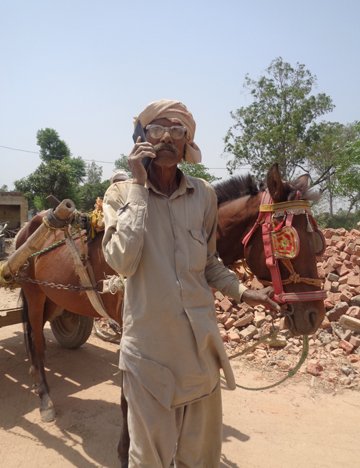Change for animals starts with people
The First International Conference on Human Behaviour Change for Animal Welfare took place last week in Dorking, Surrey and Brooke staff were there to share their expertise.
Applying human behaviour change principles to improve animal welfare, as Brooke has been doing for the past ten years, is increasingly common across the sector. Brooke’s Community Engagement Advisor Melissa Liszewski explains why changing human behaviour is so important for Brooke’s work:
“Most of the welfare problems we encounter are preventable if people behave differently towards animals. Realising this change so that animal welfare improves is the primary goal of our work with equine-owning communities, but in order to do this we need to understand what makes people tick, what their challenges are and, why they do – or don’t do – the things that they do. This only happens by truly knowing people and working in partnership with them to achieve change. This is why we put so much time and effort into community engagement at Brooke.”
Brooke staff from across our country programmes travelled to the UK to share their expertise and knowledge on human behaviour change, with ten presentations on our work in East Africa, Ethiopia, Guatemala, India, Pakistan as well as Brooke-wide initiatives. Brooke’s Senior Welfare Advisor Kim Wells attended the event and said that “watching Brooke staff presenting and sharing their experiences was a real ‘Proud to be Brooke’ moment”.

At the core of human behaviour change is an understanding of the context, culture and individuals within communities we work with and being able to adapt accordingly. This was demonstrated in Prakash Gogoi from Brooke India’s presentation on using voice messages in India to promote animal welfare. When sending owners text messages promoting good practices proved problematic due to some owners being illiterate or having phones that would not open messages written in a non-Latin language, they started to send them voice messages. This was a simple solution tailored to fit the needs of local people so that change for animals is more within reach.
Brooke East Africa’s Laura Kavata emphasised in her presentation that “behaviour and attitude change takes time”. Brooke’s staff demonstrated at the conference that with the right mix of patience, humility, respect and understanding of the people and places we work, it is possible to achieve lasting positive change for the animals and communities we work with.
The conference was a big success thanks to its organisers and sponsors. Melissa Liszewski said it “was a fantastic three days. Brooke made many contributions and was spoken of very highly on several occasions as ‘leading the way in this field’.”
See also
Dr Mohammad Zaffar Qureshi from Brooke Pakistan has presented a poster on women's Equine Welfare Groups at the UFAW conference.
